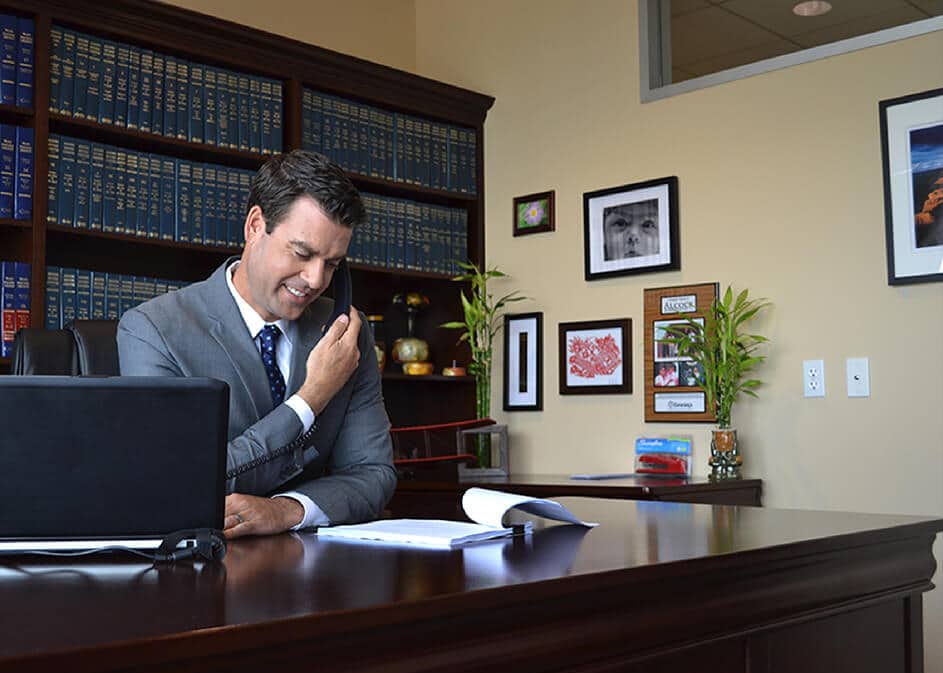Order of Protection

Order of Protection Attorney In Arizona
We are focused on helping people who have suffered domestic violence. Our firm is committed to do whatever it takes to protect our clients. If you have been a victim of domestic violence within the past year, or believe you are in imminent danger of domestic violence, we can help you petition the court for an order of protection. Obtaining and maintaining an order of protection without representation is not a simple task. We do understand, however, that many people want to handle the process themselves. As part of our commitment to helping the community, we want to explain how best to proceed.
Please forgive us for sounding technical, but the law is the law and we want to be thorough. The law pertaining to orders of protection can be found under Arizona Revised Statute, A.R.S. 13-3602. Under that law, a person can obtain an order of protection to stop (restrain) another person from communicating, contacting, or even being around them. Orders of protection are specifically meant to stop domestic violence. They are a special type of restraining order for people who have a domestic relationship. A domestic relationship is defined under Arizona Revised Statute, 13-3601:
- The relationship between the victim and the defendant is one of marriage or former marriage or of persons residing or having resided in the same household.
- The victim and the defendant have a child in common.
- The victim or the defendant is pregnant by the other party.
- The victim is related to the defendant or the defendant’s spouse by blood or court order as a parent, grandparent, child, grandchild, brother or sister or by marriage as a parent-in-law, grandparent-in-law, stepparent, step-grandparent, stepchild, step-grandchild, brother-in-law or sister-in-law.
- The victim is a child who resides or has resided in the same household as the defendant and is related by blood to a former spouse of the defendant or to a person who resides or who has resided in the same household as the defendant.
- The relationship between the victim and the defendant is currently or was previously a romantic or sexual relationship.
If you are a victim of domestic violence and share a relationship with the defendant as defined above, you qualify for an order of protection.

So how do you obtain an order of protection? Luckily, orders of protection are easily accessible in almost any courthouse in Arizona. Any magistrate, justice of the peace, or superior court judge in Arizona can grant an order of protection. A person seeking an order of protection must file a verified petition in writing to the court. That is a fancy way of saying you must tell a judge in writing about why you need an order of protection. Remember, this written statement is sworn – lying about what happened constitutes a crime.
The sworn statement to the judge must include certain information. That information includes:
- Name of the plaintiff;
- The plaintiff’s address and contact information shall be disclosed to the court for purposes of service and notification. The address and contact information shall not be listed on the petition. Whether or not the court issues an order of protection, the plaintiff’s address and contact information shall be maintained in a separate document or automated database and is not subject to release or disclosure by the court or any form of public access except as ordered by the court;
- Name and address, if known, of the defendant;
- Specific statement, including dates, of the domestic violence alleged;
- Relationship between the parties pursuant to section 13-3601, subsection A and whether there is pending between the parties an action for maternity or paternity, annulment, legal separation or dissolution of marriage;
- Name of the court in which any prior or pending proceeding or order was sought or issued concerning the conduct that is sought to be restrained;
- Desired relief (what you want the court to do).
In addition to the sworn statement, a judge shall also review any other pleadings or evidence on file. Evidence includes any evidence of harassment by electronic contact or communication. This usually means harassing text messages or social media posts. After reviewing all this information, the judge can either grant, deny, or set a hearing to determine if the order of protection should be granted. To grant the order of protection, the judge must find reasonable cause that:
- The defendant may commit an act of domestic violence or;
- The defendant has committed an act of domestic violence within the past year or within a longer period of time if the court finds that good cause exists to consider a longer period.
If an order of protection is granted, the defendant (person against whom the order of protection is against), can request a hearing to challenge the order of protection. If a defendant chooses to challenge the order of protection, the court must set a hearing within 10 days of the request.
An order of protection hearing is a full-blown evidentiary hearing. Witnesses are called, evidence is presented, and argument is heard. It is best to have an experienced attorney at this hearing to either support your request or defend against the order of protection. At the end of the hearing, the judge will decide to uphold, dismiss, or amend the order of protection.
Remember, orders of protection are only good for one year. After a year, a party must reapply for an order of protection and show good cause for doing so. Again, if you need help with obtaining an order of protection, give us a call at 602-989-5000 and our attorneys would be happy to offer a free consultation.

REPRESENTATION YOU DESERVE
Here at Alcock and Associates our team and staff are dedicated to helping and representing YOU. The first step is to understand your case. We will take the time to get to know you and your legal situation so that we are best able to answer all of your questions. After your initial consultation with our attorneys, you will know what you are facing and what can happen to your case.
EVERY CONSULTATION IS COMPLETELY FREE AND COMPLETELY CONFIDENTIAL.
Top Rated Phoenix Attorneys






It is essential that you are aware of our website policies, as they detail how we protect your data and ensure transparency in the use of your information. Please read our Privacy Policy.
